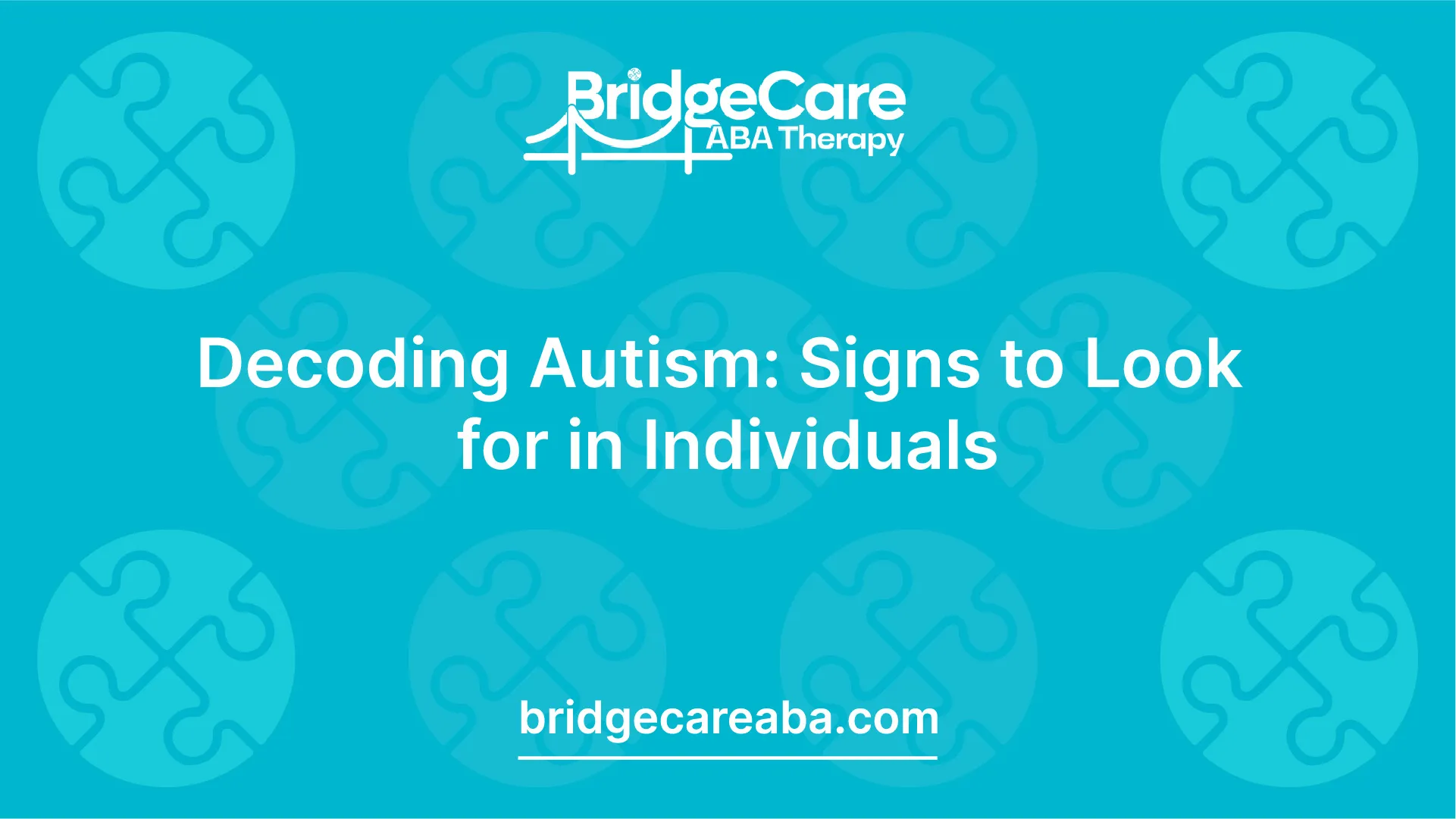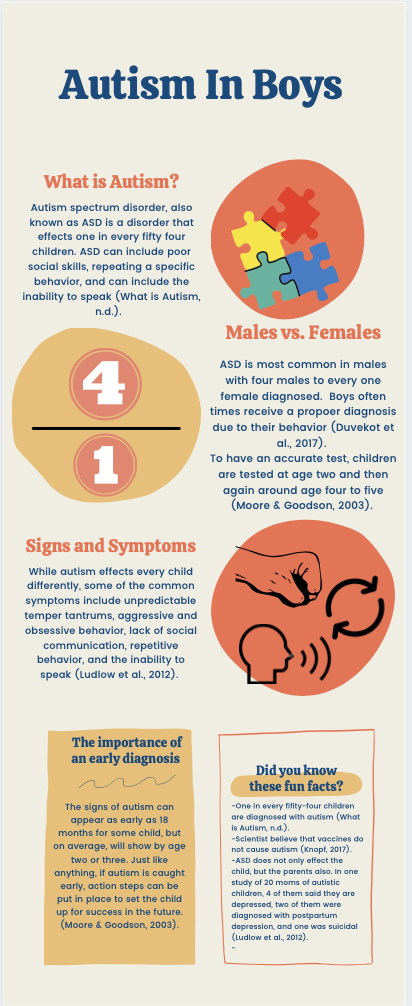Are social difficulties a sign to consider seeing an Aba Therapist near you?
Are social difficulties a sign to consider seeing an Aba Therapist near you?
Blog Article
Secret Symptoms And Signs to Identify in People With Behavior Autism
When you come across someone with behavioral autism, recognizing key symptoms and signs is important. You might notice challenges in social communications and interaction, along with a solid requirement for routines. Additionally, sensory level of sensitivities can bring about frustrating experiences. Recognizing these attributes can boost your assistance and interventions, but there's more to uncover about exactly how these habits materialize in daily situations. Let's discover what these indicators truly appear like.
Difficulties in Social Interactions
When you engage with a person on the autism spectrum, you might notice they have problem with social hints and communication. These challenges can make social communications feel frustrating for them. You might see them avoiding eye call or standing as well close or too far throughout conversations, which can develop misunderstandings. They may not choose up on body movement or faces, making it harder for them to determine how others are feeling.
When they do involve, they may chat regarding their interests in excellent information without observing if you're interested. Understanding these difficulties can assist you come close to interactions with empathy and perseverance, promoting a much more comfortable environment for both of you.
Difficulty With Verbal and Non-Verbal Communication

Non-verbal communication can be much more tough. You may see a lack of eye contact or restricted usage of motions, which can make interactions feel unpleasant. Face expressions might not constantly straighten with the discussion, causing confusion about their feelings. Acknowledging these indications is important, as it helps you much better assistance and engage with people on the autism spectrum. By recognizing their communication obstacles, you can promote extra significant links and give a much more encouraging environment.
Repetitive Actions and Regimens
Interaction challenges usually accompany other indicators of autism, such as recurring behaviors and a strong preference for routines. You could notice that individuals with autism commonly take part in details, repeated actions, like hand-flapping, rocking, or duplicating phrases. These habits can give convenience and a feeling of control in a typically frustrating world.
When they adhere to an organized timetable,Regimens are equally important; many individuals thrive. You might find that changes to these regimens can lead to significant distress. If they have a daily routine of consuming breakfast at a particular time or following a particular course to college, any disruption can cause anxiousness.
Acknowledging these patterns helps you recognize their actions and supply support. By accommodating their requirement for regular and allowing repetitive activities, you can produce a much more comfortable environment that reduces their obstacles.
Sensory Sensitivities

Common Sensory Triggers
Sensory level of sensitivities can significantly influence life for people with autism, as specific stimuli usually set off frustrating reactions. Typical sensory triggers include loud noises, intense lights, and strong smells. You might notice that unexpected audios, like sirens or alarms, trigger anxiety or distress. Likewise, fluorescent lights in stores can really feel awkward and harsh. Structures can also play a considerable duty; harsh textiles or certain food textures may be excruciating for you. Furthermore, crowded areas can bewilder your detects, making it tough to relax or focus. Comprehending these triggers can aid you handle your setting better. By understanding what impacts you, you can take steps to lessen pain and boost your daily experiences.
Behavioral Feedbacks Discussed
Recognizing your behavioral responses to sensory sensitivities is vital, as they often expose how you connect with the world. You could see that particular audios, lights, or textures bewilder you, causing anxiety or discomfort. When confronted with these stimuli, you might take out, cover your ears, or perhaps respond boldy. These actions aren't just traits; they're your way of managing overstimulation. You may likewise find yourself looking for particular sensory experiences, like deep stress or peaceful settings, to help ground yourself. Acknowledging these patterns aids you understand your needs better and can lead exactly how you connect them to others. By acknowledging your sensory sensitivities, you can function towards producing an environment that really feels a lot more manageable and comfortable for you.
Coping Methods Overview
Identifying your sensory level of sensitivities is just the initial step; now it's time to discover coping strategies that can aid you take care of those experiences successfully. Start by creating a sensory toolkit customized to your needs. This could consist of noise-canceling headphones, fidget toys, or calming aromas. Establishing a structured regimen can additionally supply predictability, decreasing anxiousness around sensory overload. Take breaks in a peaceful area to collect yourself when you feel overloaded. Exercising mindfulness strategies such as deep breathing can assist ground you in the minute. Furthermore, interact your needs with those around you; having encouraging family and friends can make a massive difference. Remember, locating what works ideal for you may take some time, so be patient and open to trying brand-new methods.
Limited Passions and Emphasis
While many individuals develop a vast array of rate of interests, those with autism usually demonstrate restricted passions and an intense emphasis on certain topics. You might see that someone with autism can spend hours delving into their favored topic, whether it's a particular type of train, a details film, or a clinical concept. This extreme emphasis isn't just a pastime; it can come to be a main part of their identity and social interactions.
You might locate that discussions revolve around these rate of interests, and they might battle to engage in broader subjects. By comprehending and acknowledging these restricted interests, you can promote an encouraging setting where they feel valued and comprehended, permitting for even more meaningful links and interactions.
Psychological Regulation Difficulties
People with autism usually face difficulties in psychological law, which can be affected by their intense concentrate on details rate of interests. You could discover browse this site that when an individual is deeply participated in a recommended activity, they can experience strong feelings, whether enjoyment or stress. This intensity often makes it tough for them to shift equipments or handle their sensations when points don't go as intended.

Irregularity in Developing Landmarks
When it comes to developmental milestones, you'll discover that individuals with autism frequently show a large variety of variability. You may see a kid stand out in language abilities however struggle with social interactions.
It's important to acknowledge that each individual's journey is special. Some may develop complex skills early, just to encounter obstacles in the future. Others may take longer to accomplish basic milestones but after that prosper in certain locations. Observing these patterns can assist you comprehend their staminas and needs much better.
Frequently Asked Inquiries
Exactly How Is Autism Identified in Children and Grownups?
To diagnose autism in children and grownups, specialists examine behavior, communication abilities, and social interactions. They typically use standard tests, meetings, and monitorings to identify if an individual satisfies the criteria for autism range disorder.
Exist Different Kinds Of Autism Range Disorders?
Yes, there are different sorts of autism range conditions, consisting of Asperger's syndrome and prevalent developmental disorder-not or else specified. Each kind varies in extent and qualities, so understanding these distinctions can aid you far better support people with autism.
What Therapies Are Reliable for Individuals With Autism?
When considering reliable therapies for people with autism, you'll locate options like Applied Habits Evaluation, speech treatment, and occupational therapy. Each strategy can help enhance interaction, social skills, and day-to-day functioning tailored to private demands.
Can Individuals With Autism Lead Independent Lives?
Yes, individuals with autism can lead independent lives. With the right support, abilities training, and sources, you can help them create self-sufficiency, manage everyday jobs, and grow in various atmospheres, cultivating their self-reliance.
Exactly How Can Family Members Assistance Enjoyed Ones With Autism?
You can support your loved ones with autism by producing an organized setting, urging their interests, practicing patience, cultivating communication, and promoting social skills. Celebrate their achievements, regardless of how small, and build a supportive community.
Although numerous individuals on the autism spectrum can make use of and recognize language, they often face significant difficulties with both non-verbal and spoken communication. Acknowledging these indications is vital, as it assists you better support and engage with individuals on the autism range. You may discover that individuals with autism typically engage in certain, repetitive actions, my sources like hand-flapping, rocking, or duplicating expressions.Sensory level of sensitivities can substantially influence day-to-day life for individuals with autism, as certain stimuli often trigger overwhelming find out this here responses.When it comes to developing turning points, you'll notice that people with autism commonly show a broad range of irregularity.
Report this page